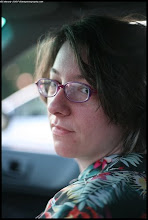A chance meeting with a doctor who feels there was something not quite right about the unexpectedly sudden death of an elderly cancer patient leads Lord Peter Wimsey to investigate whether or not a crime was committed.
When I read these books for the first time, this was the last one I tracked down, and one of the few where I figured out the answer before Lord Peter did, albeit only just before. It also introduces Lord Peter's operative Miss Climpson, whose breathless style of letter-writing (with much underlining, capital letters for emphasis, and many, many exclamation points) would get on my nerves in real life but illustrates her character wonderfully in a novel.
This is one of the two Lord Peter novels that have never been adapted for drama; of the other nine, Ian Carmichael did five in the 1970s, Edward Petherbridge did three in the 1980s, and the last started out as a play before it was novel and was made into movies a couple of times in the 1940s and 1950s. Unnatural Death and Whose Body? have never been dramatized, as far as I and the IMDb can discover.
Not to give too much away, but one principal reason Unnatural Death seems unfilmable is that so much of the obfuscation depends on the detectives not realizing that two apparently separate characters are actually the same person: Parker and Wimsey meet one persona, while Miss Climpson only knows the other. This works great on the page, but would be tough to pull off on screen without cheating; when Miss Climpson finally runs across the alter ego, she realizes who it is immediately, and if the same person played both roles, so would the audience.
I suppose there could be other ways to confuse the issue, but there's another reason why TV and film might shy away from both these books: the casually open prejudices of the 1920s, when they were written. There's no evidence that Dorothy Sayers herself subscribed to the anti-Semitism of Whose Body? or the racism against blacks in Unnatural Death; if anything, the characters who do make racist remarks are subtly ridiculed by the narration. But it's still there all the same, openly using names we're not allowed to call people on TV any more.
Sunday, January 30, 2011
Unnatural Death, AKA The Dawson Pedigree
Labels:
books,
Dorothy Sayers,
murder,
mystery,
novels,
possibly a perfect crime,
rereading
Subscribe to:
Post Comments (Atom)

No comments:
Post a Comment